Indonesia and Malaysia seek active cooperation with the EU and the Netherlands to advance sustainable and deforestation-free supply chains
The Netherlands has had a long-standing cooperation with Indonesia and Malaysia and is involved in facilitating a sustainable palm oil sector in both countries. This includes advocating and assisting all stakeholders in the value chain (not just smallholders), financing sustainability projects, promoting conservation compliance, and supporting action research. One notable example is National Initiatives for Sustainable and Climate-Smart Oil Palm Smallholders (NISCOPS). The program’s key performance indicators correspond to the three dimensions of Climate-Smart Agriculture (livelihoods, climate change adaptation and mitigation) and involve all levels of the value chain, from harvest to transformation.
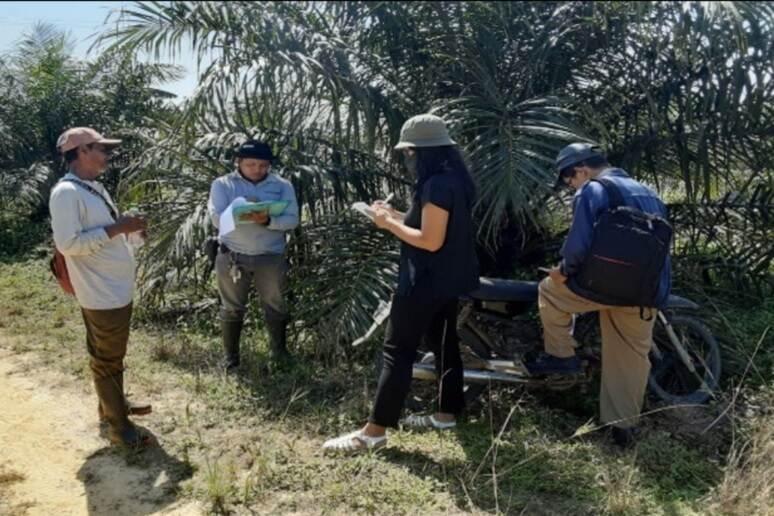
Indonesia and Malaysia are the largest palm oil producers in the world, with 47 million tons and 19 million tons, respectively. It is an important commodity for both countries, since it has the highest yield per hectare compared to other oil crops and accounts for approximately 40% of all traded vegetable oil. The Netherlands stands out as the largest importer of palm oil within the European Union (EU).
In recent years, people have become aware that palm oil production leads to deforestation and biodiversity loss. Also, it causes disputes between palm oil companies and indigenous people (who have historically utilized the land), a poor working environment, and income gaps for smallholder farmers. As a result, there is a growing recognition of the need for sustainable palm oil production to mitigate damage.
‘Indonesia and Malaysia are the largest palm oil producers in the world, with 47 million tons and 19 million tons respectively’'
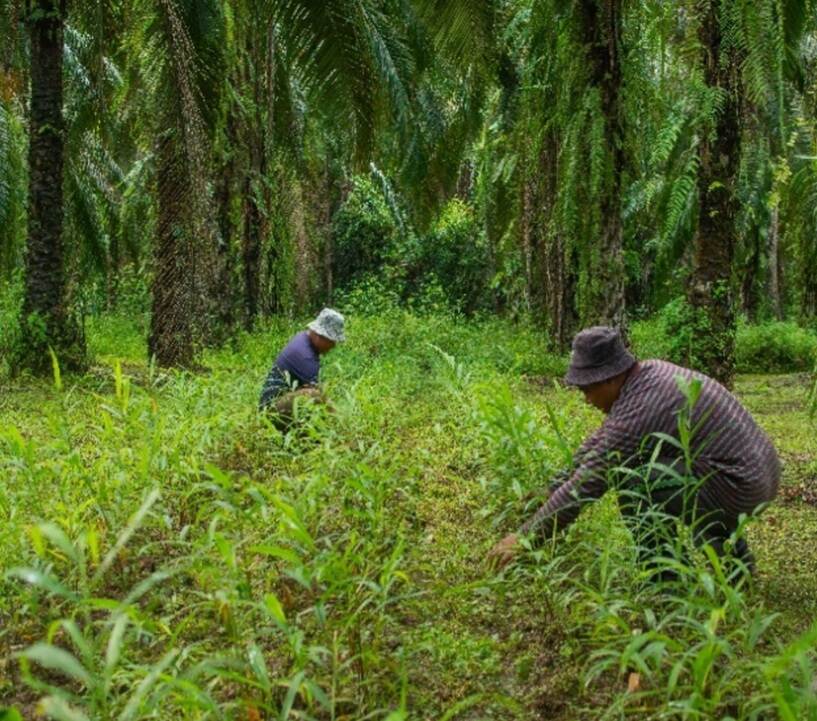
Perceptions of the EUDR may vary across Indonesia and Malaysia
To address sustainability concerns, the EU has developed the European Union's Deforestation Regulation (EUDR) which aims to reduce deforestation associated with imported products, particularly those linked to key commodities such as palm oil. The relevant commodities must be traceable to known sources and cannot come from areas that have been deforested or degraded after the cut-off date (31 December 2020). In Indonesia and Malaysia, perceptions of the EUDR may vary across producing countries and tend to be complex. The governments in both countries view the EUDR as unjustified and an imposition on their sovereignty, as they consider that their practices are already in line with sustainability standards.
In Indonesia, compliance with the EUDR will impose significant costs and operational challenges (such as establishing track and traceability systems) for palm oil producers, especially for 1.5 million smallholder farmers who rely on the palm oil industry for their livelihoods. In Malaysia, the livelihoods of more than 450,000 smallholder farmers and their families are at stake. They are most critical of the EU's proposed criteria for creating a high-risk list of countries that are linked to deforestation.
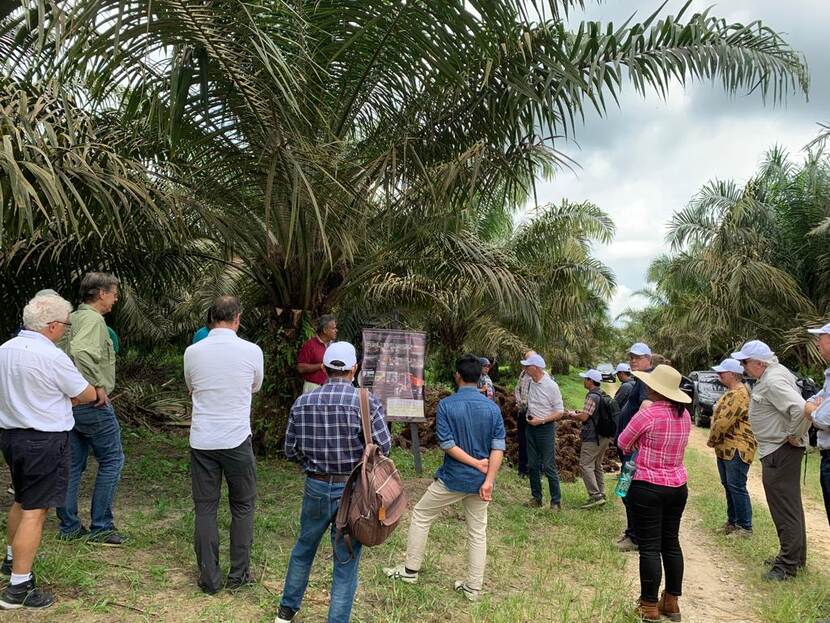
Smallholder burdened by administrative and compliance costs
Smallholder farmers will be disadvantaged by the EUDR as they have a limited ability to meet the regulation’s requirements. More crucially, they could be further burdened by increased administrative and compliance costs. Smallholder farmers have little leverage and resources to fully take part in the palm oil supply chain due to the dominance of big corporate entities in the industry.
Also, the EUDR will impede the entry of goods causing deforestation, like palm oil, which will harm the countries' economy. The palm oil sector makes up about 3.5% Indonesia's GDP in 2021 and about 2.97% of Malaysia’s GDP in 2023.
Joint efforts to facilitate dialogue, cooperation, and solutions
Despite the challenges, the EUDR is still seen as a significant measure as it serves as a milestone and mechanism for advancing sustainable supply chains. Actions resulting from adhering to the EUDR will indirectly help in promoting sustainable land use practices, preserving biodiversity, and contributing to the mitigation of climate change.
Recognizing the potential socio-economic implications and the EUDR’s noble cause, Indonesia and Malaysia seek to engage with the EU to address concerns. A joint task force involving both countries, the Council of Palm Oil Producing Countries (CPOPC), and an EU delegation have emerged and play a crucial role in addressing these concerns, facilitating dialogue, strengthening cooperation, and discussing mutually beneficial solutions.
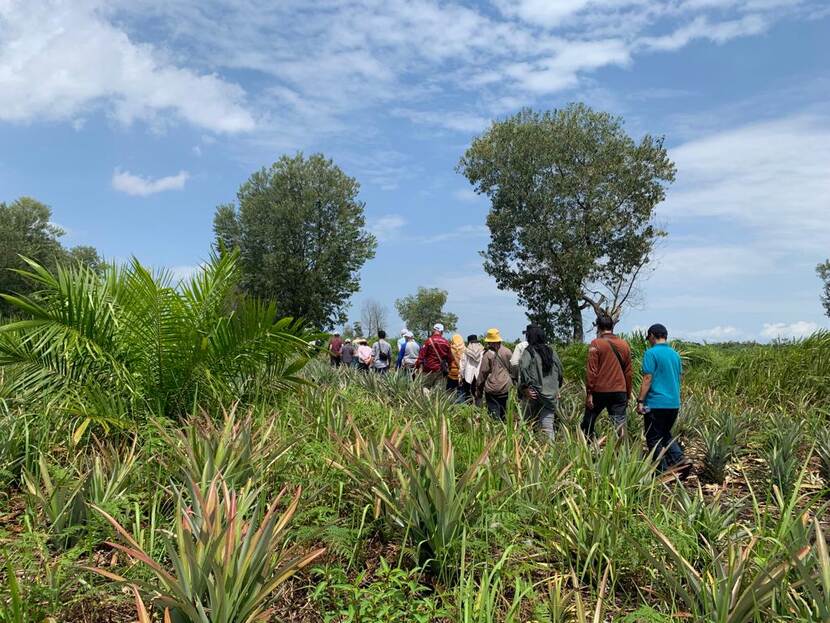
Supporting policy coherence and constructive dialogue
The agricultural team of the Dutch Embassies in Indonesia and Malaysia has been active in providing support for the respective countries. Within the joint task force, they serve as facilitators and advocates for policy coherence between the EU, Indonesia and Malaysia and they engage in constructive dialogue. The joint task force has five work streams aiming to build a common understanding of the EUDR, one of which is about traceability.
The Indonesian Government has initiated the Indonesian National Dashboard for Commodities (INDC) to create an integrated system to ensure accurate, reliable, and established traceability and geolocation. Malaysian palm oil stakeholders have developed Malaysia’s Sawit Intelligent Management System (SIMS) and e-MSPO to improve supply chain management.
‘The Dutch Embassies serve as a facilitator and advocate for policy coherence between the EU, Indonesia and Malaysia and engage in a constructive dialogue’
National Initiatives for Sustainable and Climate-Smart Oil Palm Smallholders
In addition to being actively involved in the joint task force, the agricultural team of the Dutch embassies (with the mandate from the Dutch Government) has initiated project collaborations between governments, businesses, NGOs, and research institutions to develop innovative solutions tackling deforestation and promoting sustainable palm oil production.
A notable example is National Initiatives for Sustainable and Climate-Smart Oil Palm Smallholders (NISCOPS), developed in Indonesia, Malaysia, Nigeria and Ghana from 2019-2023 with IDH (Sustainable Trade Initiative) and Solidaridad (international networking organization) as the implementing partners. The program’s key performance indicators correspond to the three dimensions of Climate-Smart Agriculture: livelihoods, climate change adaptation and mitigation. It also involves all levels of the value chain, from harvest to transformation.
In Indonesia, the program is mainly executed in West Kalimantan, Aceh, and North Sumatra. Tens of thousands of hectares of smallholder palm oil plantations have carried out climate adaptation practices and detailed management plans with private sector partnerships. In Malaysia, the program is executed in Perak, Johor, Sarawak, and Sabah. Together with the Malaysian Government, a monitoring system has been initiated to support deforestation-free palm oil, after an agreement was reached on a single definition on deforestation for the whole of Malaysia. The monitoring system looks at all the different classifications of forests in Malaysia. At the end of the program, a total of 15,221 smallholder farmers were trained on sustainable farm practices and diversification methods.
Financial support and collaborative research projects
As NISCOPS was relevant to addressing global and national palm oil sector challenges, the initiative will continue into its second phase with joint support from the UK Government. For the coming five years, the Netherlands and the UK are contributing around 21million euros each to the second phase of NISCOPS (2024-2028), extending its implementation in Indonesia, Malaysia, Ghana, Nigeria, while also expanding the reach of the program to Colombia. NISCOPS can be one of the means to strengthen the capacity of smallholders in meeting sustainable practice standards.
The agricultural team of both Dutch Embassies also support collaborative research projects that aim to develop new technologies, practices, and strategies for sustainable palm oil production. Two Dutch universities (Wageningen University & Research and Van Hall Larenstein) and two Indonesian universities (IPB University and Universitas Lambung Mangkurat) are conducting a three-year program (2022-2025) called SustainPalm. The program will contribute to more efficient land use, circularity within the plantations, and management of peat areas where production of palm oil is leading to high Greenhouse Gas emissions.
The Indonesian Government is currently conducting a pilot project on the implementation of the EUDR together with certain Indonesian palm oil companies and working out how to link it to its Intended Nationally Determined Contribution (also called INCD: climate actions Indonesia intends to take under the international climate agreement at the UN Framework Convention on Climate Change Conference of the Parties (COP21) in Paris in December 2015). To learn from each other and encourage the seamless execution of the EUDR, the Dutch Embassy plans to link a Netherlands EUDR dry run and pilot projects to the INDC and SIMS where possible.
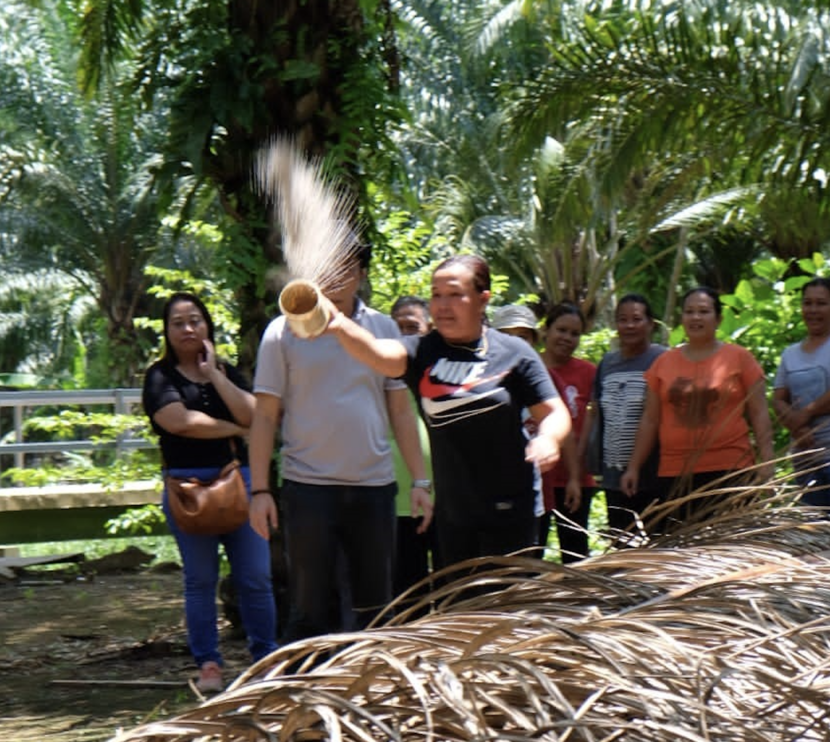
Long-standing cooperation with the Netherlands
The Netherlands is a strong proponent of promoting and ensuring sustainable palm oil supply chains (and food systems in general) and understands that achieving this requires inclusive cooperation with all parts of the value chain. This includes advocating and assisting all stakeholders in the value chain, not just smallholders, financing sustainability projects, promoting conservation compliance, and supporting action research.
In short, the Netherlands has had a long-standing cooperation with Indonesia and Malaysia and is actively involved in various efforts to facilitate a sustainable palm oil sector in both countries.
More information
Would you like more information on the EUDR and its effects in Indonesia and Malaysia? You can visit the country page of Indonesia and Malaysia at the website Agroberichtenbuitenland.nl of the Dutch Ministry of Agriculture, Nature and Food Quality. You can also send an e-mail to the agricultural team at the Dutch Embassy in Jakarta, Indonesia: jak-lnv@minbuza.nl.
This article is part of the 11th edition of the e-magazine Agrospecial titled "Impact of EU Deforestation Regulation worldwide" (originally published on June 5, 2024).
In this Agrospecial, the Netherlands Agricultural Network showcases the opportunities and challenges associated with the EUDR from the perspective of the LAN teams. They introduce us to their related work, provide insights into what is happening in their respective countries, and showcase examples of projects and actions the LAN is taking in promoting sustainable supply chains and responsible business conduct. Once again, cooperation is key, the LAN plays a crucial role in this work.